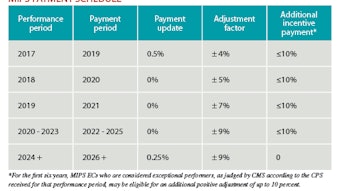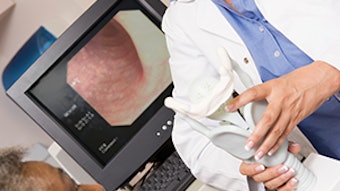Voice Committee members offer responses to patients’ most common questions on voice care
Featuring questions by Libby J. Smith, MD, with answers by Sid Khosla, MD; Norman D. Hogikyan, MD; Julina Ongkasuwan, MD; Jeanne L. Hatcher, MD; and Reena Gupta, MD
Featuring questions by Libby J. Smith, MD, with answers by Sid Khosla, MD; Norman D. Hogikyan, MD; Julina Ongkasuwan, MD; Jeanne L. Hatcher, MD; and Reena Gupta, MD
Q: I don’t sing, but I talk all day for my job. What does it mean to be a “professional voice user?”

Q: I become hoarse often, but my voice always recovers. Is there a problem with that?
A: Norman D. Hogikyan, MD: This situation of a recurring but not chronic voice complaint is not unusual, and there are several common ways in which this can occur. In some cases, there is not actual laryngeal pathology as the root of the problem, but the individual is misusing or abusing their voice leading to the recurring symptoms. The symptoms may resolve temporarily when the misuse or abuse stops, but they recur when the poor voice behaviors resume. In other cases, there is actual chronic laryngeal pathology, often vocal fold mucosal lesions, but the patient only notes symptoms when the pathology is aggravated by inflammation, excessive voice use, or other factors. Sometimes people with chronic mucosal lesions accept a basal level of dysphonia as their new normal and don’t recognize that they are in fact always dysphonic to some degree. They may just accept an impaired voice-related quality of life (V-RQOL) until it reaches a moderate to severe degree of impairment. There are many other possible causes of a pattern of recurring hoarseness too, such as neurological problems, autoimmune disorders, or allergic stimuli. The bottom line point that I would like to stress is that recurring voice symptoms are a problem and do warrant an evaluation by an otolaryngologist or laryngologist. Once a diagnosis is determined, a tailored treatment approach can be implemented that will hopefully allow the individual to be free of voice problems long term and to freely “share their voice!”Q: I don’t like drinking plain water but have heard it is important to stay hydrated. How can I best do this?
A: Julina Ongkasuwan, MD: You may have heard the saying: “singers should not appear until their pee is clear.” Vocal hygiene programs often focus on hydration as a cornerstone of vocal health. Fluid lubricates and alters the viscoelastic properties of the vocal folds, possibly protecting their surface from the impact stress of vocal fold vibration and decreasing vocal fatigue. Hydration can be systemic (by drinking fluids) or superficial (by breathing in the humidity of the air). Exactly how much fluid to drink varies between individuals depending on their activity level and other medications. Some blood pressure and allergy medications in particular may dry mucous membranes. Keep an eye on your urine, it should be clear or pale yellow.But beware what you are putting in your cup—caffeine, found in coffees, teas, and sodas, is a diuretic that may cause further dehydration (though the exact effect on the vocal folds remains unclear); carbonated drinks may worsen reflux (which can in turn have a deleterious effect on the voice); and sugar can contribute to weight gain. So, what does that leave us with? Our old standby: water. If you do not like the taste of plain water, you can add the perennial singers’ favorite, lemon and honey, or consider non-caffeinated teas or even mineral water. However, you must be cognizant of the sugar content of these beverages. While there is scant data, an alternative may be surface hydration with humidifiers or nebulizers, which may provide at least transient improvement in voice quality.
Q: With all the new possible side effects attributed to proton pump inhibitors, what else can I do for my reflux symptoms?
A: Jeanne L. Hatcher, MD: First I think it is important to make sure that your symptoms are caused by reflux. When it comes to throat irritation making a sensation of mucus or a lump in there, it could be from dehydration, allergies, or some combination of those. Having an otolaryngologist examine your larynx for signs of inflammation is important. If hoarseness is the main symptom from your reflux, stroboscopy will better examine the vocal cords specifically for reflux irritation. You can also discuss the role for reflux testing with your doctor as there are a couple of ways to do that. Before continuing or changing medical management, this may be helpful.If reflux is confirmed, there are several options to treat this without relying on a daily medication. Avoiding large meals, eating before bedtime, fatty meals, alcohol, caffeine, peppermint, and chocolate are just a few of the dietary modifications you can try. For that great meal with a lot of reflux triggers, taking a proton pump inhibitor is a good option. Another family of medication for reflux are histamine receptor blockers or H2 blockers. Also, good for “as needed” reflux control is Gaviscon Advance®, a medication that helps make a barrier at the top of the stomach, reducing reflux from coming up. Remember too, that it is all about lifestyle and medication in moderation. If you have severe symptoms despite doing “all the right things,” surgery may be an option. Discuss your symptoms in detail with your doctor to best manage that balance.
Q: As I age, my voice sounds “old,” becoming weak and raspy. Why is that and what can be done to help?
A: Reena Gupta, MD: The changes that occur to the voice as we age can be very troubling. Our identity is closely tied to our voices and our relationships are built on them. Voice changes can therefore become a major barrier to socialization.As we age, vocal musculature may atrophy, or thin. This results in either a softer closure or incomplete closure of the vocal folds. When this happens, the pitch of the voice changes, rising in men and falling in women. The effort required to use the voice also increases. It becomes tiring to speak for long periods of time, projection and shouting become more difficult, and speaking can become uncomfortable due to the effort it requires. These changes happen to varying degrees in each individual. While it may start early for some people, it may never occur to an appreciable extent in others.
Vocal therapy can help to decrease symptoms of vocal atrophy. If this is not successful in reducing symptoms satisfactorily, injections into the vocal muscle can restore bulk temporarily. This can significantly reduce symptoms.











